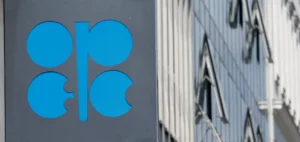Russia, facing challenges in its domestic fuel market, is seriously considering reinstating a fuel export ban from August. Alexander Novak, Deputy Prime Minister, said that despite general stability, persistent difficulties with Ai-95 gasoline had been observed. This gasoline, highly prized by Russian motorists, is experiencing supply problems that require potentially drastic measures.
Russia’s Federal Antimonopoly Agency has already expressed its wish to reimpose the ban from August 1. The aim of this measure is to meet the demand for fuel during the harvest season and stabilize prices, which are essential for the country’s agricultural economy. Nevertheless, the increase in Russian oil exports, and therefore in the profits generated by the oil industry, could prompt the government to limit the desired measures.
Background to previous restrictions
Russia had initially introduced a partial ban on fuel exports from March 1 for a period of six months. However, this measure excluded the Moscow-led Eurasian Economic Union and certain countries with direct intergovernmental agreements, such as Mongolia. The restrictions were aimed at preventing fuel shortages and containing rising prices after a series of Ukrainian drone attacks on refineries and technical breakdowns.
However, in May, these restrictions were suspended until June 30, then extended to the end of July. The possible reinstatement of the ban is therefore part of a proactive management of fuel supplies, which is particularly critical at times of peak agricultural consumption.
Economic Impacts and Government Strategies
The reinstatement of the fuel export ban could have significant implications for the Russian energy sector. On the one hand, this could lead to lower export revenues for fuel producers. On the other hand, this measure could stabilize domestic prices and guarantee adequate supplies for farmers and other domestic consumers.
The Russian government has always sought to strike a balance between maximizing export revenues and domestic stability. Recent attacks and technical problems have highlighted the sector’s vulnerabilities, justifying temporary but potentially frequent export bans.
Perspectives and reflections
The Russian energy market is constantly adapting to geopolitical and technical challenges. The possible reinstatement of the fuel export ban in August demonstrates the government’s desire to protect its domestic interests while navigating the complexities of international relations.
This situation could prompt other producing countries to keep a close eye on their own export and supply policies. Energy market stability remains a crucial priority to avoid major disruptions that could affect not only Russia but also its trading partners.





















